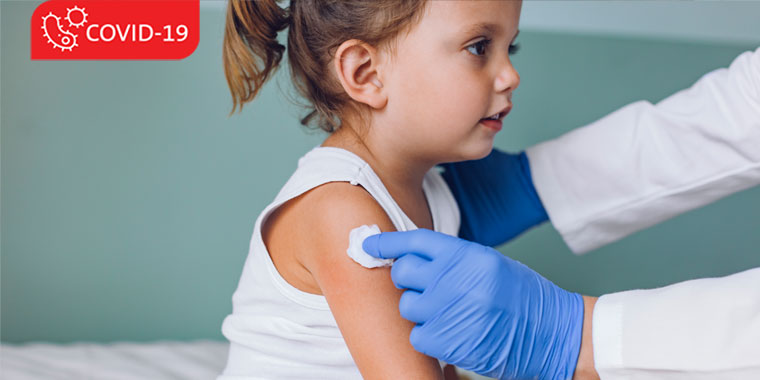Pandemic Parenting: Keep Your Child’s Health Record Up To Date

Answer a few questions and we'll provide you with a list of primary care providers that best fit your needs.
Don’t put off your child’s routine check-ups or vaccinations. That’s the message from pediatricians as new data show a rising number of children missing well-care visits and shots as a side-effect of the COVID-19 pandemic.
To learn more about the importance of scheduled doctor’s visits, Premier Health Now talked with Paul Weber, MD, from The Pediatric Group.
“It’s safe to go see your doctor,” says Dr. Weber. “We are following all safety guidelines and, if anything, we are being overly cautious.”
The Value Of Well-Child Visits
Well-child visits protect your newborn and growing child from preventable disease and ensure they meet developmental milestones. When you see your child’s doctor, any delays or concerns can be addressed right away, says Dr. Weber. Your doctor can make a referral for speech or physical therapy, or connect you with parenting resources to address a certain behavior.
When vaccinations are put off, the entire community faces an increased risk for disease outbreaks, warns the American Academy of Pediatrics and the Centers for Disease Control and Prevention (CDC).
“We give vaccines at a time when they are most effective and most needed,” says Dr. Weber. “Newborns need vaccines that prevent what can be serious childhood infections, like pertussis. If children are not vaccinated in a timely fashion, the risks go up.”
Living with the new coronavirus does not mean that other diseases are no longer a threat.
“With people staying home, we are seeing vaccinations against hepatitis and mumps, measles and rubella drop significantly,” says Dr. Weber. “This could cause us to lose our herd immunity, so it’s important to get vaccinations done at the recommended times.”
Pre-teens and adolescents also benefit from mental health screenings that take place during an in-person doctor’s visit. Dr. Weber says doctors monitor teens for any issues with depression and anxiety, drug and alcohol abuse, and sexual health. Treatment is provided when needed.
“Now, with COVID-19, we have this extra layer of people being even more anxious and even more worried,” Dr. Weber says. Teens and children may feel sad, anxious, or lonely.
What To Expect At the Doctor’s Office
There are relatively fewer cases of COVID-19 among children compared to cases among adult patients, says the CDC. In the United States, 2 percent of confirmed cases of COVID-19 were in people under age 18.
“The benefits of coming in for routine checks-ups and sick visits far outweighs the chance of contracting COVID-19 at the doctor’s office,” says Dr. Weber.
When you visit your pediatrician’s office, you will see many safety measures in place, such as:
- All doctors, nurses, and staff wear masks and gloves
- All patients and parents are asked to wear a mask
- Everyone observes social distancing as much as possible
- No one waits in the waiting room
- When you arrive, you are taken directly to the exam room
- There are separate rooms and/or times for well-child visits and sick-child appointments to prevent sick patients from encountering healthy people
- Every exam room is sanitized after each patient visit
Dr. Weber said doctors are following all Ohio Department of Health and CDC guidelines.
In-Person Care Whenever Possible
Some pediatricians may offer telemedicine or video visits, but most prefer to see your child in person, Dr. Weber says. A rash or an established behavioral diagnosis like anxiety are two conditions where your pediatrician could check your child over phone or video.
When possible, in-person visits allow the doctor to check your child’s weight and blood pressure, talk with your child, and do a physical exam. Dr. Weber says. “We don’t want to miss anything, and we don’t want to give antibiotics when they’re not needed.”
Doctors and other health professionals learn more about COVD-19 every day, and health recommendations are updated as needed.
“As time goes on,” says Dr. Weber, “we try to be more selective and, hopefully less restrictive, as long as decisions are based on good science and good data and do not put people at risk.”
Answer a few questions and we'll provide you with a list of primary care providers that best fit your needs.
Source: Paul Weber, MD, The Pediatric Group; American Academy of Pediatrics, Centers for Disease Control and Prevention





